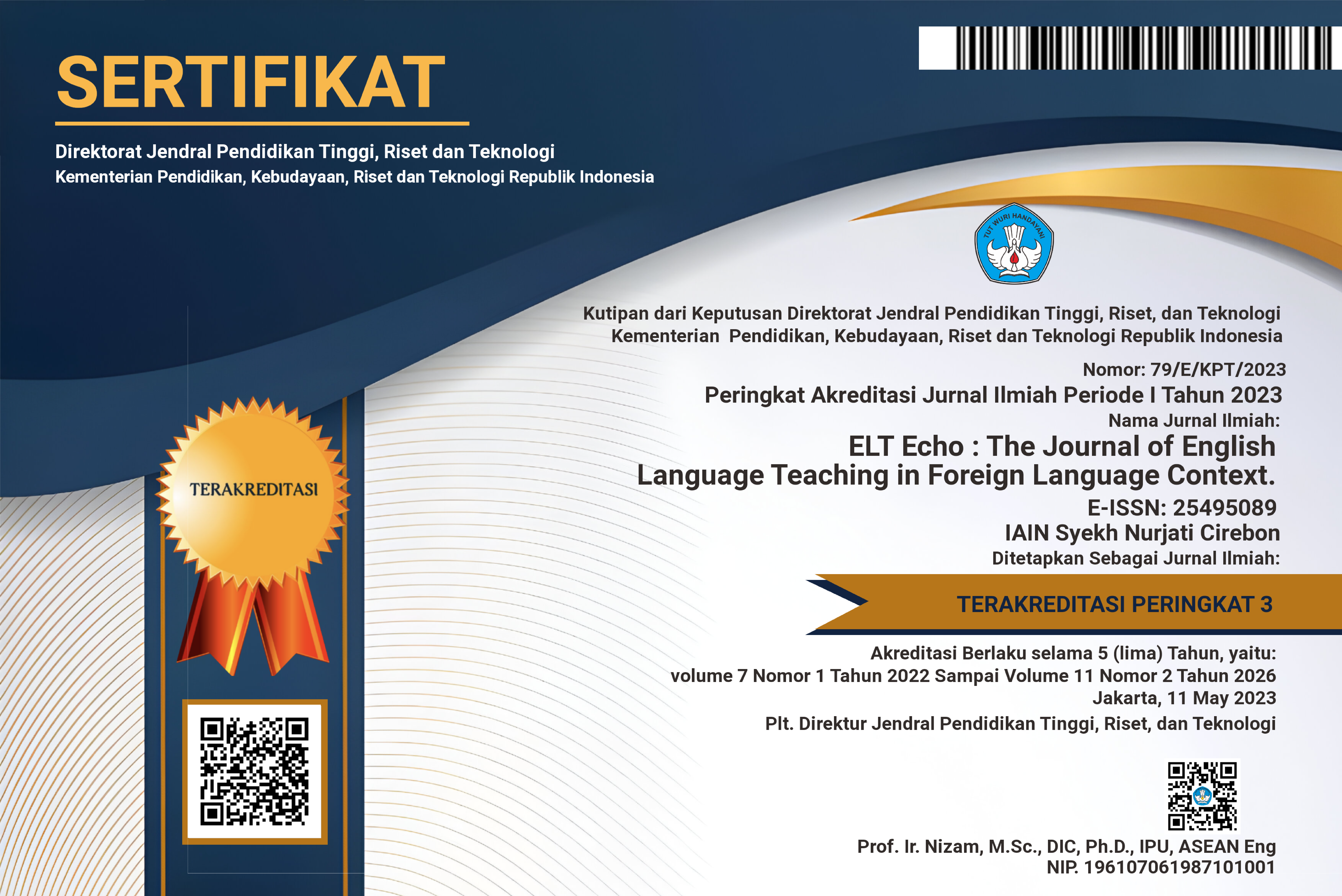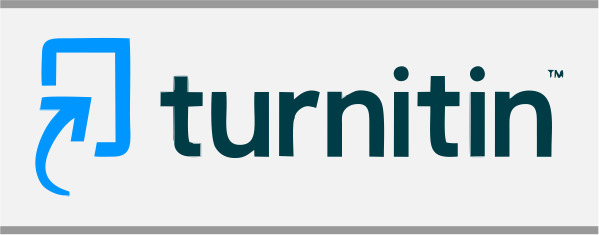The New Facilitators’ Strategies in Managing Online Discussion of the Second IMOOC
(1) UIN Antasari Banjarmasin
(*) Corresponding Author
Abstract
The second Indonesian Massive Open Online Course are the collaboration between Regional English Language Office (RELO) and the Embassy of United States of America in Jakarta introducing the use of technology for autonomous learning as the new insight for the participants that focuses on recruiting pre-service English teachers, English Teachers (Elementary school, junior high school, or senior high school teachers), English lecturers in the university around Indonesia. The purpose of this research was to describe qualitatively the second MOOC new facilitators’ strategies in managing online discussion and whether they were affected by their own facilitators’ strategies when they joined as the participants of the first Indonesian MOOC. There were eight new facilitators who came from different regions in Indonesia such as Rembang, Salatiga, Surabaya, Solo, Semarang, Malang, and Banjarmasin. The data were collected through a Questionnaire. The results of this research shown that there are various strategies that have been applied by the new facilitators including design questions that particularly get on-topic discussion carefully, help online learners in providing a guideline for the preparation on-topic responses, present rules for those who choose off-topic comments explicitly, state the expectation for online discussions participants to stay on a topic, set alternative locations for off-topic discussions, screen all postings and put off-topic posts to alternative locations with an explanation to participants, incorporate a reminder that responses stay on a topic with all posted questions, reword the original question when responses are going in the wrong direction, provide discussion summary regularly, give warning privately and corrective suggestions to learners who submit off-topic comments, give a reward for those who keep on a topic, and offer a grade for those who keep on a topic. This is really helped the second Indonesian MOOC participants to make the discussions contains more cognitive presences and they can accomplish the course and gain a new knowledge from this online course.
Â
Keywords: IMOOC, Facilitators’ strategies, Indonesian Massive Open Online Course, Online discussion
Full Text:
PDFReferences
References
Beaudin, B. P. (1999). Keeping online asynchronous discussions on topic. Journal of Asynchronous Learning Networks, 3(2), 41-53.
Davis, B.G (2009). Tools for teaching. San Francisco, CA: Jossey-Bass.
DeNoyelles, A., Zydney, J.M., & Chen, B. (2014). Strategies for creating a community of inquiry through online asynchronous discussions. MERLOT Journal of Online Learning and Teaching, 10(1), 153-165.
Ellis, R. A., Goodyear, P., Prosser, M., & O'Hara, A. (2006). How and what university students learn through online and faceâ€toâ€face discussion: Conceptions, intentions and approaches. Journal of Computer Assisted Learning, 22(4), 244-256.
Fox & Patterson. 2012. Crossing the software education chasm. Commn. ACM, 55(5):44–49
Garrison D.R. & Cleveland-Innes, M. (2005). Facilitating cognitive presence in online learning: Interaction is not enough. American Journal of Distance Education, 19(3), 133-148.
Hall, B.M. (2015, April). You're asking the wrong question. Faculty Focus. Questions for a Socratic Dialogue (PDF). Virginia Tech College of Engineering, Department of Computer Science.
https://uwaterloo.ca/centre-for-teaching-excellence/teaching-resources/teaching-tips/developing-assignments/blended-learning/online-discussions-tips-instructors
https://www.cte.cornell.edu/teaching-ideas/teaching-with-technology/online-discussions.html
https://www.facultyfocus.com/articles/online-education/strategies-managing-online-discussions/
Rovai, A. (2007). Facilitating online discussions effectively. The Internet and Higher Education,10, 77-78.
Vihavainen, A., Luukkainen, M., & Kurhila, J. (2012, October). Multi-faceted support for MOOC in programming. In Proceedings of the 13th annual conference on Information technology education (pp. 171-176). ACM.
Vonderwell, S. (2003). An examination of asynchronous communication experiences and perspectives of students in an online course: A case study. The Internet and higher education, 6(1), 77-90.
Vonderwell, S., Liang, X., & Alderman, K. (2007). Asynchronous discussions and assessment in online learning. Journal of Research on Technology in Education, 39(3), 309-328.
Zhou, H. 2015. A systematic review of empirical studies on participants’ interactions in internet-mediated discussion boards as a course component in formal high education settings. Online Learning Journal, 19(3).
DOI: 10.24235/eltecho.v4i1.4425
Article Metrics
Abstract view : 188 timesPDF - 55 times
Refbacks
- There are currently no refbacks.
Â
This Journal is indexed by:
Â

This work is licensed under a Creative Commons Attribution 4.0 International License.










